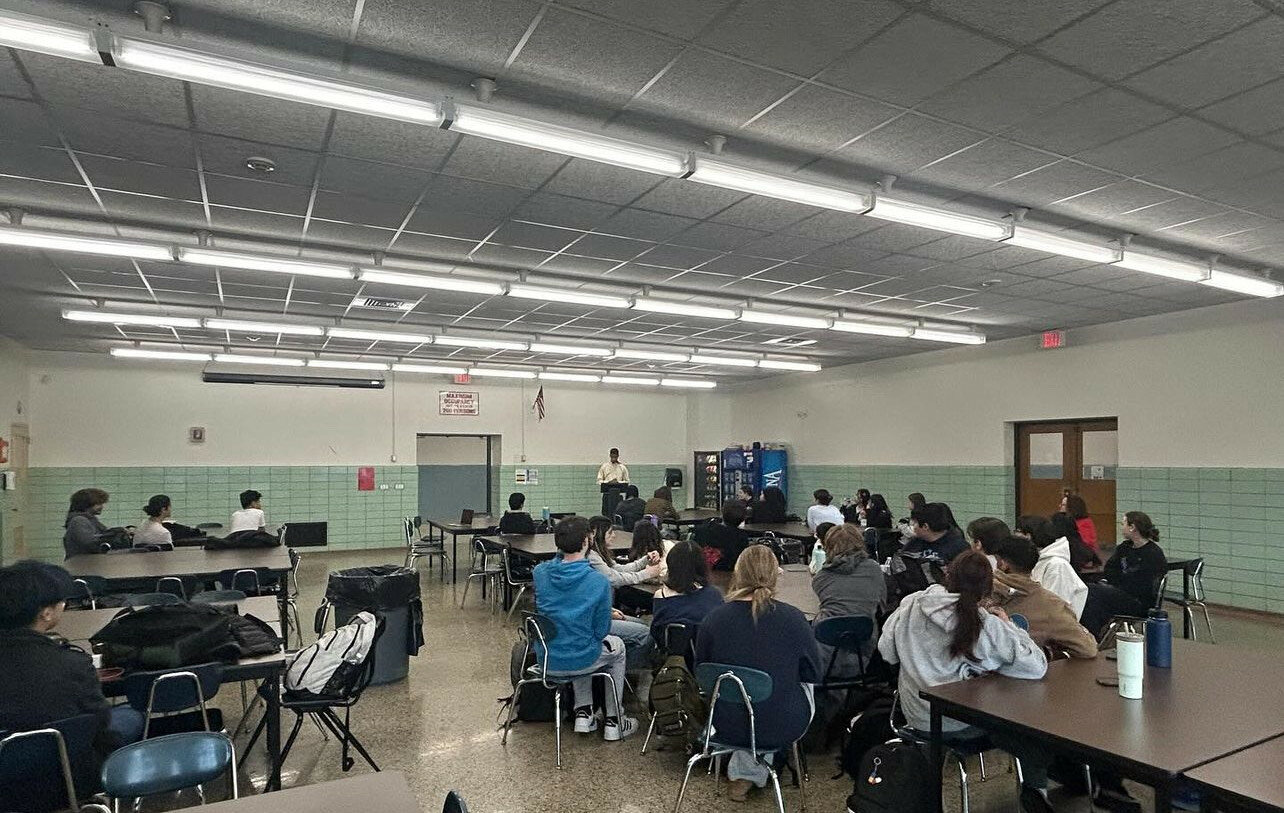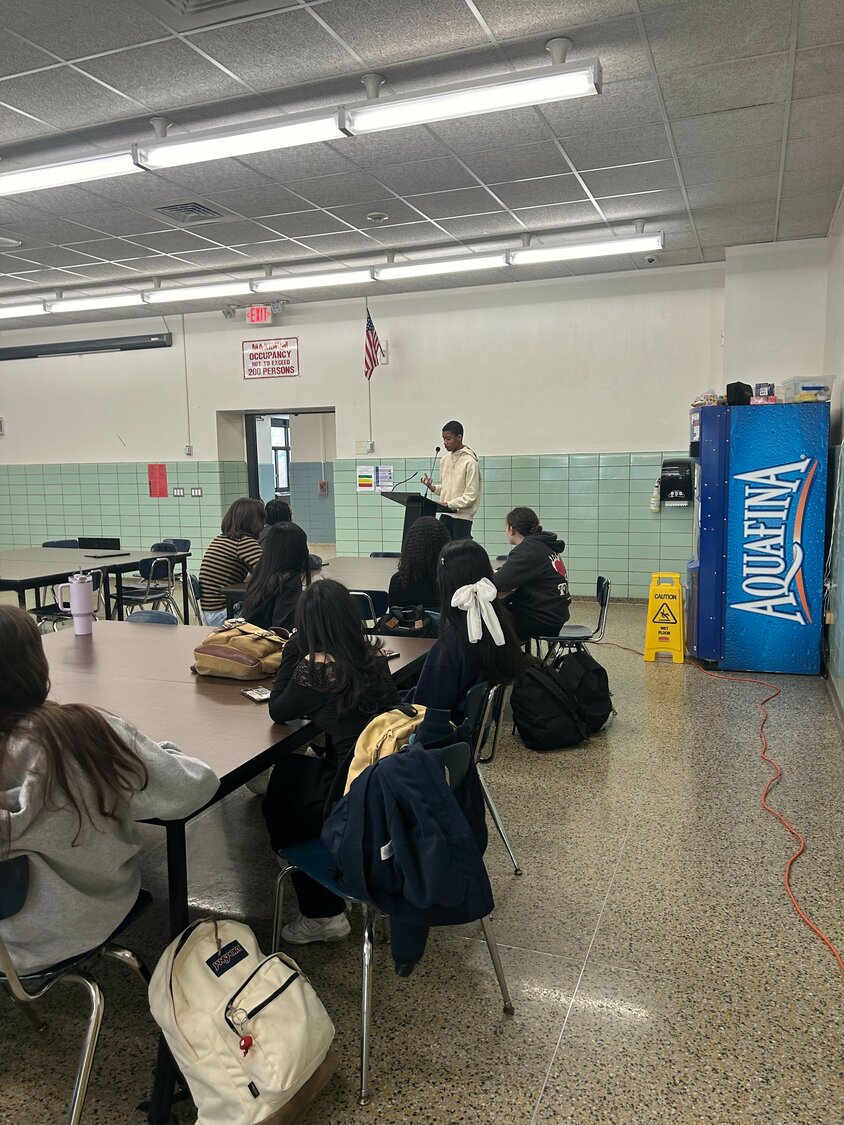Black history celebrated with Calhoun club’s Open Forum
Discussing hard topics like race and equity
Students in the Racial Equity Club at Calhoun High School, in the Bellmore-Merrick Central High School District, have been busy throughout February, hosting events marking Black History Month, during which the achievements and contributions of African-Americans are recognized and celebrated. The club held events that focused on historical figures that paved the way for those who followed, and those who continue to do so today.
Club members also made flyers, which were hung around the school, to emphasize the importance of Black History Month.
In Calhoun’s orchestra classes, thanks to efforts of the Racial Equity Club, instead of playing traditional pieces, student musicians took the time to recognize and learn more about members of the Black community who helped music grow and evolve.
The keynote event of the month, which club members called the Open Forum, took place on Feb. 15, when students, faculty and the school administration gathered in one of Calhoun’s cafeterias for conversations about race. Other clubs at the school, including the Gender Equality Club and the Model UN, held their own Open Forums.
The Racial Equity Club dubbed its forum “Colorful Conversations.” Students and faculty who joined in shared their experiences with race relations in a positive setting. More than 40 people took part, and members of the club asked questions to help facilitate conversations about community and inclusivity.
The event started with the clubs opening message, “Let us remember our world is not confined to binaries of black and white. It is a rich tapestry constructed with the vibrant shades of diversity, hence the theme of our discussion is called Colorful Conversations, as it serves as an important reminder of the variety of experiences and perspectives that define our shared humanity.”
“It was important to hear from a variety of students,” Katie Salvatore, a junior and a member of the club, said, “who came from a variety of backgrounds and have a variety of experiences.”
Senior Ashleigh Coyne emphasized the importance of recognizing that there is no way to know what someone else is going through unless others who are willing to listen hear their story. Through student groups like the Racial Equity Club, Coyne said, students have the opportunity, and are encouraged, to broaden their awareness and learn more about the discrimination that some students and community members face.
And while events like the Open Forum can be daunting, the more people talk, the more comfortable they feel about sharing their experiences.
“I love open forums, because they’re the perfect mix of formal and relaxed,” senior Grace Miller said. “You have that formal aspect, where we’re structured with the questions to guide us, but then anybody could just go up and talk. As the conversation flows, everybody gets a little more comfortable, and it becomes this huge conversation.”
“Even something as small as listening can bring so much attention to racial issues, and people can educate themselves and grow from it,” Ayana Mascary, a senior, said. “Even though it can seem so simple, it’s doing so much for other people.”
Club members said they hoped the event inspired others to keep the conversation about race and equity going. Along with the Open Forum, Racial Equity also joined forces earlier in the month with another club, Growth Mindset, to record a podcast episode in which students discussed racial issues with the intent of educating listeners.
“I would love, especially for our younger audience — especially freshman, sophomores, some juniors — to take initiative to start conversations like these,” Nickolas Mascary, a senior, said. “They can start these conversations.”
“I’m absolutely honored to help these students facilitate necessary conversations within our community,” Beth Finneran, the Racial Equity Club adviser and a social studies teacher, said. “The Open Forum concept was significantly influenced by Dr. Martin Luther King Jr.’s concept of a ‘beloved community,’ where people of all hues, backgrounds and experiences can gather together and solve social issues.”

 43.0°,
Partly Cloudy
43.0°,
Partly Cloudy 







